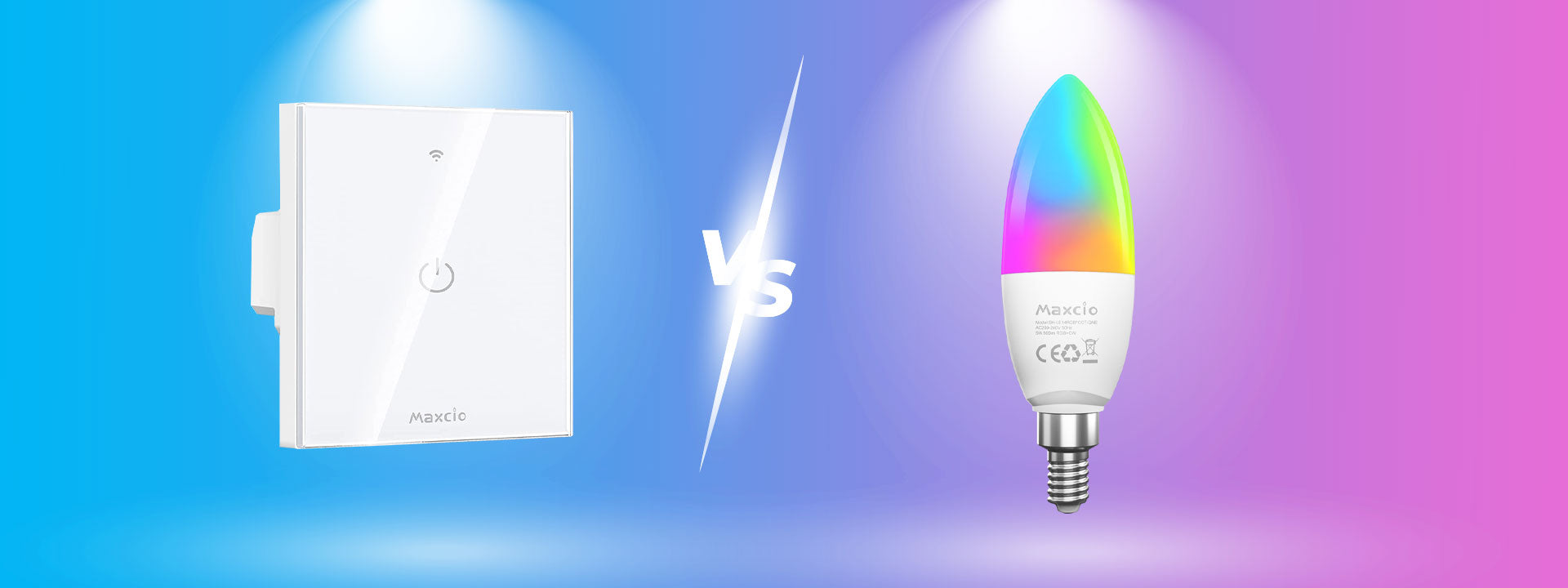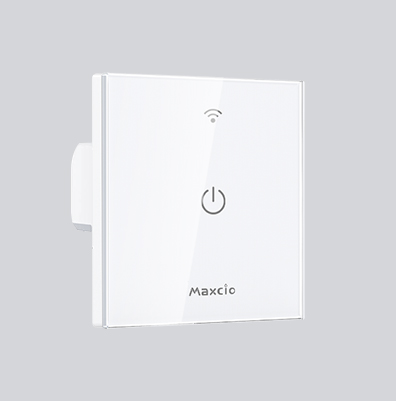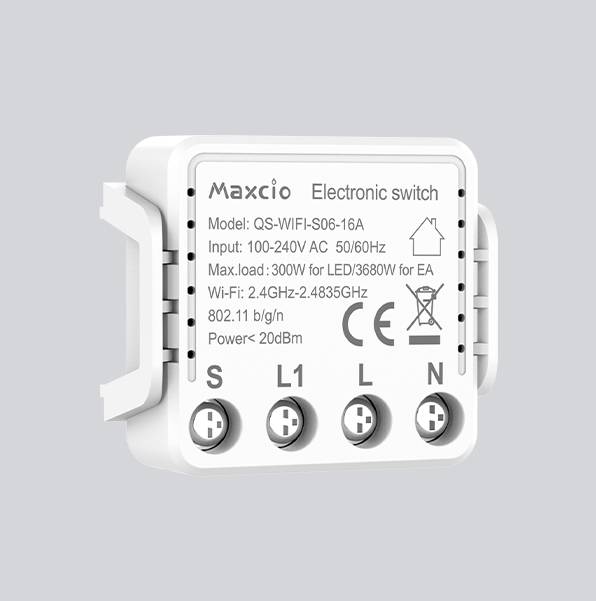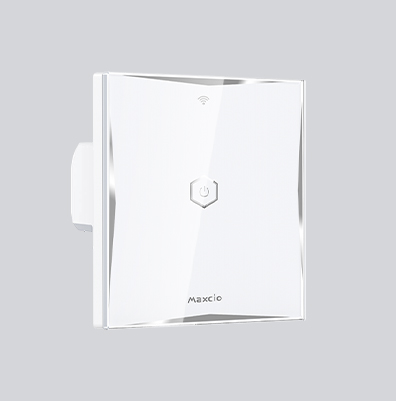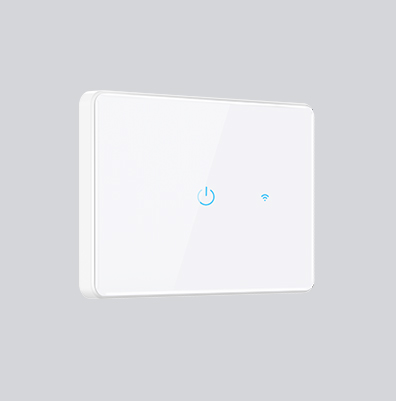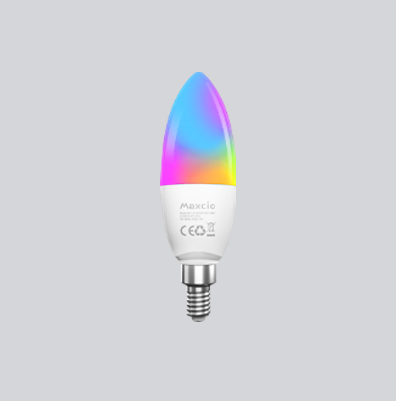Smart Bulb vs. Smart Switch: Which One Should You Buy?
Looking for a new way to control your lights? You're probably wondering whether you should get a smart bulb or a smart switch.
Smart lighting is often the most effective way to take advantage of smart home technology, but which smart lighting solution is the right one for you, smart bulbs or smart switches?
Both have impressive benefits as well as a few drawbacks, so let’s shine some light on this conundrum and find out which outshines which.
Why Choose Smart Bulb or Smart Switch
Smart bulbs and smart switches add a significant level of convenience, comfort, aesthetics, and value to your home. They do so much more than just light up a dark space. With smart bulbs and smart switches, you can set when and how the lights work according to your personal routine and schedule. You also don’t need to worry about forgetting to leave a light on while you’re away for the weekend because you can simply check and turn off the lights if needed from the smartphone app.
A lot of people have also been getting creative with home security with their smart lighting by setting a timer preset which randomly alternates which lights are on and off throughout the house, making it look like someone is puttering around the house. Kevin McCallister would approve.
Suffice it to say, both smart bulbs and smart switches offer a ton of practical and aesthetic functionality to your home and are only getting “smarter” as the industry develops. Not to mention, they can be one of the easiest and most affordable ways to integrate smart technology into your home.
How Smart Bulb and Smart Switch work
Smart Bulbs
Smart bulbs are LED light bulbs that have built-in wireless communication “antennas” that allow you to use your phone, voice assistant, or other smart devices to control the light remotely. Once installed in a light fixture, you can tweak the settings to a truly impressive degree of customization, all without having to turn on a switch. Smart bulbs can be controlled through a smartphone app or smart home assistants like Alexa, or Google Assistant.
Smart Switches
Smart switches work much like smart bulbs do; they have wireless communication capabilities which let you control the light from a smart device. Smart switches need to be wired into a switch panel and can work with any kind of light bulb. They have just about the same functionality as smart bulbs in that they allow you to customize your lights with features such as timer functions, dimming, mood/task presets, and more.
To be frank, smart bulbs and switches are basically the same gifts wrapped in different packaging, but one has got to be better than the other, right? Well, everyone has their own intentions and preferences, so here is a list of the pros and cons of smart bulbs and smart switches which you can use to decide which is the superior option for you.
Pros and Cons of Smart Bulbs
Advantages of Smart Bulb
- Easy to install and set up.
- Can be installed into any A or E-shaped light fixture, including lamps.
- The cheaper option.
- Higher-end options come with more features like color options, built-in security cameras, and more.
- Guaranteed to be more energy efficient, seeing as the vast majority use LED technology.
- Great for people who rent but want some smart lighting.
Disadvantages of Smart Bulb
- Limited shape options (only A and E), can be incompatible with light fixtures.
- If the switch that the bulb is connected to is turned off, the bulb won’t work until turned on again.
- May flicker and/or buzz for a variety of different reasons.
- Can sometimes be unresponsive or uncooperative with voice assistant.
- Significantly more expensive than regular light bulbs.
Pros and Cons of Smart Switches
Advantages of Smart Switch
- Compatible with all bulbs and fixtures.
- Can be operated remotely regardless if the switch has been manually “switched off” or not.
- Better for smart home integration.
- Typically more responsive to voice assistants.
- Adds value to the home if installed throughout the house.
Disadvantages of Smart Switch
- More hands-on and somewhat technical installation process.
- The significantly more expensive option.
- Not compatible with homes that are not fitted with a neutral wire (homes built before the 1980s)
- Not ideal for renters as they are the more permanent option.
Which Is Better: Smart Bulb or Smart Switch
At the end of the day, both options have the same great functionality, the main differences are in price and installation process. Personally, I think that smart bulbs are currently better than smart switches simply because they cost less and are easier to install and can also be removed with the same ease.
Smart switches require more of a commitment as they cost more and have a much more involved installation process, which, in my opinion, is not a good idea for a technology that is still in the relatively early stages of development. I just don’t think it’s wise to spend a bunch of money and time on something that is going to become outdated within a few years. That being said, I can see great value in smart switches for someone who is looking to sell or rent out their home within a short time frame.
In short, get smart bulbs if you are like me and don’t want to invest too much time and money on smart lighting until the technology is a bit more developed. Conversely, get smart switches if you want a more permanent smart lighting solution that can potentially increase the value of your home.
Smart home technology is all the rage right now, so if your home is outfitted with a built-in modern lighting system, you’ll likely get more attention from potential home buyers.
Best Use of Smart Bulbs
There are so many great uses for smart lighting that it’s hard to narrow down which is ultimately the best just for smart bulbs. After careful deliberation, we’d consider the best use for smart bulbs that smart switches don’t offer is the ability to use them with lamps.
Using a smart bulb with a lamp will eliminate the need to fiddle with one of those twisty switches under the lamp shade or having to tediously locate one of those inline cord switches. Furthermore, you can generally make better use of smart bulb functions as oftentimes adjusting color and brightness for ambience is best done with a secondary light source. Lastly, a lamp with a smart bulb is transported much more conveniently than a wired-in smart switch.
Best Use of Smart Switches
On the whole, smart switches are more consistent and reliable smart lighting solutions when it comes to everyday functionality. For this reason, the best use for smart switches is to use them for your main light sources in your home so that you can control the lights in the most important rooms without as much worry about voice assistant issues or people deactivating them by turning them off manually.
Smart Bulbs vs. Smart Switches: Our Bottom Line
Here at Maxcio, we want you to have full control over your living space so you can have the best quality of life possible, free of hassle. When it comes to the big question, what’s better, smart bulbs or smart switches? We believe that it is best to use smart switches for your primary light sources (entrance, living room, kitchen, dining room, main bedroom, etc.) and smart bulbs for your secondary light sources (spare rooms, lamps, porch light, etc.).
By assigning them these different functions, you are maximizing the technology’s potential while reducing any technical issues they can present. Simply put, get the best of both worlds and use smart switches for your most used light fixtures and smart bulbs for your auxiliary light fixtures.
Smart Bulb vs. Smart Switch FAQ
- What Smart Switch Works with Smart bulbs?
Smart switches can work with certain makes of smart bulbs. Some smart switches that can be used with smart bulbs include:
- Do Smart Bulbs Work with Regular Switches?
Smart bulbs will work with any regular switch, but make sure that the switch is left on at all times. If the light switch is turned off, you will not be able to use the smart bulb's voice command, timer, presets, and other smart functions.
- Using Smart Switch with Regular Light Bulbs?
Smart switches will apply their smart functions to any sort of light bulb, be it LED, incandescent, or fluorescent.


